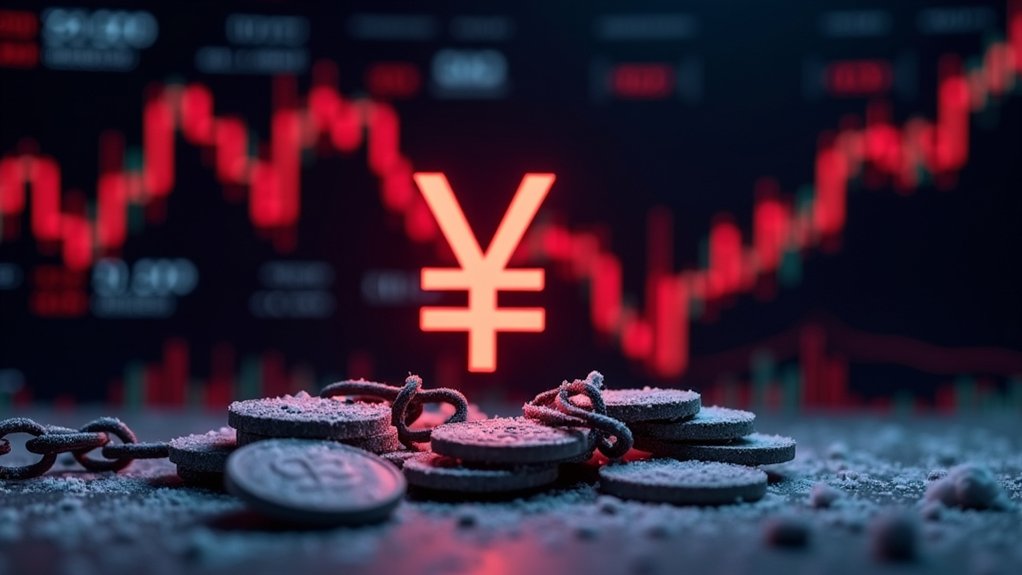The JYS Group, a Guangdong-based investment firm that promised eye-popping 9% returns to starry-eyed investors, spectacularly imploded in early May 2025 – taking $180 million in savings down with it.
Because who doesn’t love the promise of astronomical returns on infrastructure-linked investment products? Turns out, if something seems too good to be true, it probably is. The company’s chairman apparently got the memo early, quietly slipping away to the United Kingdom before the whole house of cards came tumbling down.
High returns and vanishing chairmen – the oldest trick in the financial fraud playbook strikes again.
The timing couldn’t have been worse. Global markets were already reeling from an April stock market crash, and J.P. Morgan had just raised recession probability to a nerve-wracking 60%. The situation echoed the devastating 2007-2008 financial crisis that led to massive job losses and widened wealth inequality across America.
Add in the spicy mix of US-China trade tensions and the looming threat of 125% tariffs, and you’ve got yourself a perfect storm of financial chaos. The VIX benchmark spiked to unprecedented levels, signaling extreme market fear and uncertainty.
Local investors in Guangdong took the biggest hit. These weren’t sophisticated Wall Street types – just regular folks hoping to grow their savings with those tempting 9% annual returns. Spoiler alert: They didn’t get them.
The collapse fits a familiar pattern of high-yield investment schemes gone wrong, joining a parade of similar financial frauds being exposed worldwide. It’s like watching reruns of a show nobody wants to watch, except this time it’s costing real people real money.
The regulatory implications are staggering. As China grappled with significant trade negotiations and global financial scrutiny, this mess dropped right in their lap.
It’s a stark reminder of the challenges in overseeing investment products, especially during periods of market volatility.
The chairman’s escape to the UK suggests this wasn’t just bad luck or poor management – it has all the hallmarks of a carefully planned exit strategy.
While financial news outlets reported the chairman’s identity, they might as well have reported on a ghost. He was gone before the dust even started settling, leaving Guangdong investors holding nothing but broken promises and empty accounts.





